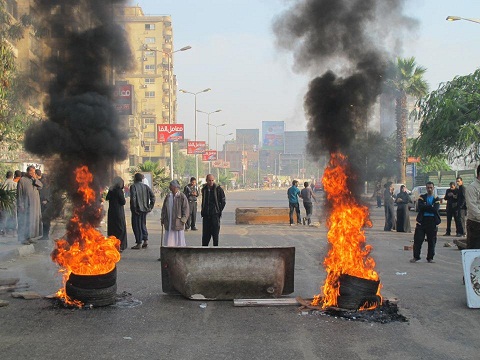Sudanese government using international pressure to prolong crisis
CAIRO: After a week of meetings between Sudan’s neighbors separately and with representatives of the Sudanese government, it seems clear that the country’s Arab neighbors are backing the government in resisting international calls for a peace keeping force in Darfur.
After a meeting between President Hosni Mubarak and Libyan leader Muammar Qaddafi, Egyptian presidential spokesman Suleiman Awad said “Mubarak emphasized that Egypt sees no use of some international powers inclination for increasing pressure on Sudan.
On Tuesday, Mubarak met with Qaddafi in Tripoli to discuss the situation in Darfur. He headed a top level delegation that included Foreign Minister Ahmed Aboul Gheit and intelligence chief Omar Suleiman.
The day before, Mubarak had received his Sudanese counterpart Omar Al-Beshir in Cairo and urged him to seek a comprehensive peace solution modeled on the agreement that brought the North-South war to an end after 21 years of fighting.
The Sudanese government had reached an agreement with one of the three rebel factions in Abuja in May 2006, but not the other two, which further inflamed the fighting.
Awad told reporters in Tripoli that “there is no alternative to the broadening of the Abuja accord to include all rebel factions, possibly as further confirmation that Sudan’s Arab neighbors do not support the international community’s wishes to send multi-national peacekeeping troops to help avert the crisis.
“A result of international peacekeeping forces is to reduce Egypt’s role in Sudan, Nabil Abdel-Fatah from Al Ahram Center for Political and Strategic Studies told The Daily Star Egypt by way of explaining Egypt’s reticence in accepting the idea of a multi-national peace force.
Additionally, “Qaddafi is funding many of the factions in the fighting, and so is the Sudanese government, Abdel-Fatah said.
In spite of Arab and international lobbying to end the crisis in Darfur, all efforts have as of yet failed to curb the fighting in Sudan which has claimed 200,000 lives since Feb. 2003 and spilled over into neighboring countries such as Chad.
The reason for everyone’s inability to stem the tide in Darfur, according to Abdel-Fatah, is the “absence of any minimum consensus within Sudan to solve the issue. Rather, the warring factions are outdoing each other in the fighting.
Abdel-Fatah added that “the Sudanese government is using the pressure from the international community to prolong the crisis, such as by denying the major transgressions of the government forces and the Janjaweed.
On the other hand “the US and UK are using Darfur as a pretext to enforce their vision of Sudan. The UN and the West also want to prolong the crisis so as to introduce international peacekeeping forces, Abdel-Fatah said.
“However, he added, “that is just a result of Al-Bashir’s actions in marginalizing the problems in Darfur and the South.

